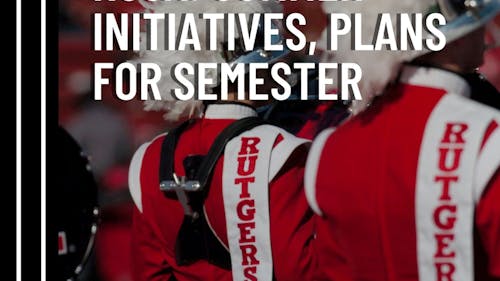RUSA discusses summer initiatives, plans for upcoming semester

As the University prepares to begin the Fall 2020 semester in a remote format, members of the Rutgers University Student Assembly are working to adapt to the conditions created by the ongoing coronavirus disease (COVID-19) pandemic.
Nicholas LaBelle, president of the Assembly and a School of Arts and Sciences senior, said the Assembly’s role is to advocate for student needs as well as manage funding for approximately 500 clubs on campus. Due to the ongoing pandemic and the uncertainty surrounding the upcoming year, he said the Assembly began meeting over the summer for the first time.
One of the first initiatives the Assembly implemented to address the impact of COVID-19, which began last semester, was the allocation of approximately $125,000 for students facing financial challenges. The Daily Targum previously reported the University received $27 million in federal funding to distribute to students through the Coronavirus Aid, Relief and Economic Security (CARES) Act, but excluded undocumented and international students.
“(The Assembly was) mainly targeting those that are either DACA (Deferred Action for Childhood Arrivals) or international that weren't eligible for CARES (Act) funding, but it went to more than that — folks that just had trouble paying rent, paying for food, help with textbooks,” LaBelle said. “We spent (more than) $90,000 so far on directly helping students like in those circumstances, and we're still actively giving out funds.”
He said the Assembly recently began working with governing councils from the individual schools at Rutgers to combine resources and create a larger fund for students in need during the upcoming semester.
LaBelle also worked with administrators to voice student grievances regarding the tuition for the upcoming semester.
The Targum previously reported University President Jonathan Holloway implemented a 15 percent reduction in the campus fee for the upcoming semester after a petition spread online calling for lower tuition for online classes. LaBelle said the Assembly is still looking to see if the fee can be reduced further and is also advocating for more transparency regarding what mandatory fees actually pay for.
Ari Dublin, vice president of the Assembly and an Edward J. Bloustein School of Planning and Public Policy senior, said the Assembly is also aiming to address some of the mental health challenges posed by the pandemic. She said it is important to ensure all students have access to resources such as Counseling, Alcohol and Other Drug Assistance Program and Psychiatric Services (CAPS), especially for first-year and transfer students who have yet to adjust to the University.
Aside from COVID-19, the Assembly also began initiatives to address ongoing racial justice movements. The Targum previously reported LaBelle and Dublin worked with Black student organizations to organize a protest on campus against racism and police brutality in June.
Since then, Dublin helped establish a Black Caucus within the Assembly for Black representatives to meet and discuss issues specifically facing their community. She said the Assembly will also reach out to Black student organizations to invite their members to run in the upcoming elections.
“I think it's very important when these clubs are aware of how much power they have, especially for a certain population who doesn't feel like their concerns are being met or being heard, to vocalize and be like ‘hey, well there's a student organization that is in charge of doing stuff more administrative, and you can be the focal point for people who look like you,’” she said.
LaBelle said the Assembly also passed a bill to begin improving relations between the Rutgers University Police Department (RUPD) and students through increased transparency. He said the Assembly wants to ensure that public safety is not carried out at the expense of some students’ mental health.
“The main point of this resolution is to have us work with (RUPD) Chief (Kenneth) Cop and folks in RUPD to have more open reporting about internal incidents that happen and making students understand how that works,” he said. “So if they do have a negative interaction with the police, they can report that and they can get justice in that capacity.”
Although the Assembly will meet virtually this upcoming semester, LaBelle said students are encouraged to continue attending their meetings every Thursday, speak with individual committees, comment on legislation or even write their own bills to submit.
He said the Assembly will also hold fall elections in late September for students interested in becoming a representative, with some of the seats being specifically designated for first-years.
“This fall election is pretty critical because we're putting some really serious questions about divestment, some about racial justice, maybe about tuition and really the one that's going to be most critical (to the Assembly) is we’re changing our constitution in general,” he said. “Students have to vote if you want to get the fair, equitable constitution passed.”
LaBelle and Dublin said they are hoping to increase their social media presence to connect with the student body outside of the weekly Assembly meetings, which Dublin said is important so students feel comfortable reaching out to student government.
LaBelle said many other student organizations are also active on social media, which Dublin said is an opportunity for students to meet new people from home, especially first-year and transfer students who may not know many other Rutgers students.
“Utilize social media, and just be awkward with people. If you’ve got to send a really awkward (direct message) just to get involved in something — like the Assembly, it can be literally anything — just do it. It's worth your while,” she said.



